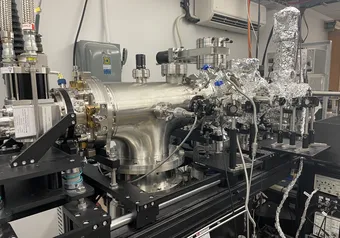What most students seem to forget is that UBC, amidst its unending construction and eternal rain, is a world-class research university. Here are a few of the amazing work UBC researchers have churned out while you finished season five of Suits on Netflix.
Ocean microbe classification: function not form
It’s a well-known fact that microbes rule the world. Though invisible to the naked eye, these organisms drive key cycles that enable life to flourish.
However, studying them has proven to be quite tricky given the sheer number and diversity between species, and the incredible complexity of their communities.
But UBC researchers did just that. They studied over 30,000 microbial species and classified them not according to their species — like they usually are — but according to whether they use sunlight for energy or toxic sulfide. They found that the function of marine microbial communities were closely tied to the environment, enabling the scientists to predict how the organisms were distributed based on just a few parameters such as ocean depth and temperature.
The team’s next goal now is to determine why there is this huge variation in marine microbial species within the same “functional group” and whether this diversity is at all essential to our oceans’ biogeochemistry.
New technique to track migraines
Migraines and epilepsy are relatively tricky to study because tracking the low-frequency brain waves associated with them normally involves placing electrodes directly on the brain (inside your skull). New research done at UBC and abroad found that amplifying electroencephalograms (EEGs) produce diagnostic results comparable to the very invasive current standard.
EEGs are produced by placing electrodes on the scalp. A special amplifier was then designed to detect signals at a broader frequency than standard clinical EEG systems. The researchers suggest that this new technique could allow for better understanding, diagnosis and treatment of migraines and epilepsy.
Synthetic heart valves for heart surgery
Researchers in UBC’s Okanagan campus have invented synthetic heart valves, arteries and veins that would allow doctors to improve their bypass surgery techniques without relying on animal or human cadavers. The synthetic “tissue” doesn’t decompose, break down or contaminate easily, and is said to resemble the texture of living tissue more than those from cadavers. The material itself is relatively cheap and easy to create. Learn more in our article about the technology.
New microbiome forecasting model
In more marine microbe news, another study introduced a new mathematical model that combined genetic information with environmental information in order to understand how organisms interact with the world around them.
Better modelling could allow more accurate predictions on the effects of climate change, among other things, to a particular area and associated industries such as fisheries, paving the way for better policy- and decision-making.
The model is based on an ideal microorganism community, so more research is needed to expand the model.
Don't believe everything you read on the internet
With the world right at our fingertips, we pretty much Google things as often as we breathe. While this could work well for certain topics, the internet’s response when it comes to queries about preventing Alzheimer’s are problematic at best.
[Sorry, video not found. You can contact webmaster@ubyssey.ca to fix the issue]
WebMD jokes aside, the survey showed that not only are the few good websites offering good information relatively hard to distinguish from the majority of poor ones, some of these bad sites even offer advice that could be detrimental to someone’s health and as many as one in five promoted products for sale.
This is incredibly worrisome as a little over half a million Canadians are living with dementia, with the number doubling within the next 15 years as the population ages. The researchers are currently developing a tool to help people distinguish high-quality information online.
First online
Share this article



![['']](https://storage.googleapis.com/ubyssey/media/renditions/2.width-1000.format-webp_ZgLMmPP.webp)





